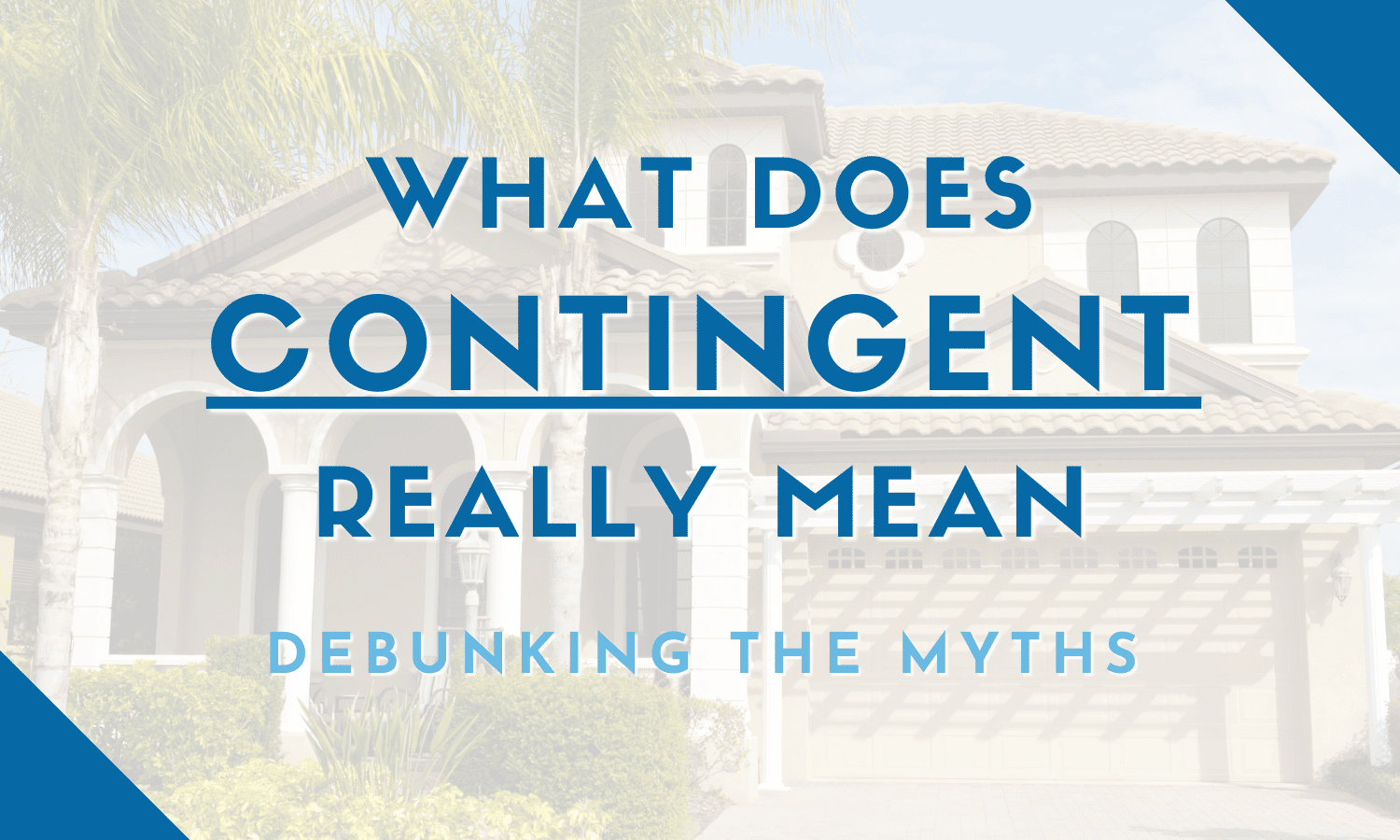The term contingent is a clause often included in real estate contracts or an offer to purchase real estate. Nonetheless, it is frequently misused and mistaken for other terms. Understanding the meaning of such terms can help you identify properties that may still be available for purchase and how to move forward if you are interested in the offer.
Meaning of Contingent
According to Vocabulary, you can use the adjective contingent to describe something that can occur when something else happens first. For example, making money is contingent on finding a good-paying job.
Contingent in real estate means that the sale of a home is under contract but includes one or more contingencies; specific criteria in the purchase agreement should be met before the sale can be final.
Therefore, when a person wants to buy a house but makes a contingent offer on the house, they are trying to say, “I would like to purchase the property, but I want to make sure some things on my end are finalized first before closing the sale.” The buyer may want to inspect the home first before buying it or confirm his finances.
Knowing which contingencies to include is just one of the reasons people pay real estate agents to help them through this process.
In a real estate contract, the provision of contingency can make a contract null and void if a particular event were to occur.
What People Think Contingent Means
Many people confuse contingent and pending.
When a property is under contingency, it means that the property is under contract, but some conditions must first be met. A property that is pending means that the contingencies have already been met.
Look at it this way, a real estate listing goes through four different statuses.
- Active – The property is currently for sale on the MLS (multiple listing service).
- Contingent– The seller has accepted an offer, but the buyer has not yet removed their contingencies.
- Pending– all contingencies have been addressed, and the deal is almost complete.
- Sold- The sale is final and has been recorded in the county where the property resides.
Therefore, a contingent contract and a pending contract are not the same.
Other people confuse contingent and under contract.
Contingent is considered an active status, and the property is on the market. Under contract means that the property is not being marketed or shown, and expected to close on the contract closing date.
A home under contract is one where the buyer and the seller have come to an agreement, but the deal is still in its early stages and may not come to fruition. However, a house under contract could return to the market due to unforeseen issues interfering with the conditions laid out in the current contract between the seller and the prospective buyer.

Most Common Contingencies
1. Inspection Contingency
It is the most common contingency involving 59% of contract contingency in May 2020. It occurs when a buyer wants a home inspection before purchasing it. After inspecting the house, the buyer might insist that the seller perform needed repairs or reduce the sale price to cover the repairs’ cost. If the two sides cannot agree, the buyer is refunded, and the home goes back on the market.
2. Appraisal Contingency
Lenders usually do it to ensure they are not lending more than the property’s fair market value. If the appraised value is lower than the sale price, the buyer may need to secure additional funding.
3. Financing Contingency
It is sometimes called a mortgage contingency. If a buyer is not already pre-qualified for financing, the deal may be contingent upon the buyer being able to do so. If the buyer cannot find a lender who will approve a mortgage, the contract is void, and the home goes back on the market.
4. Home Sale Contingency
This contingency can arise when a buyer must sell their current home before buying yours.
Terms such as continent are vital when it comes to buying or purchasing a home. It is therefore essential that you work with a professional real estate agent who is well acquainted with such terms. At 1% Lists Franchises, we are extremely successful at running real estate brokerage which will cut unnecessary overhead and increase your market exposure. We are able to offer you complete, full-service real estate services for only 1% commission on the listing side and can sell it for as little as 3% TOTAL commission. For more information, contact us now, and we will be more than willing to help.





